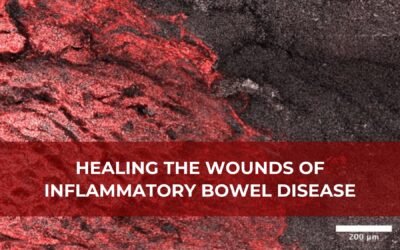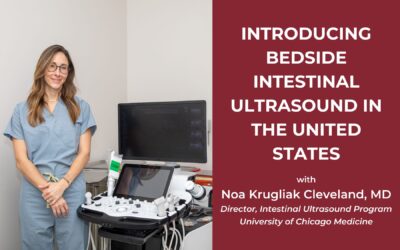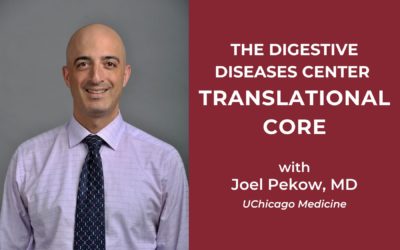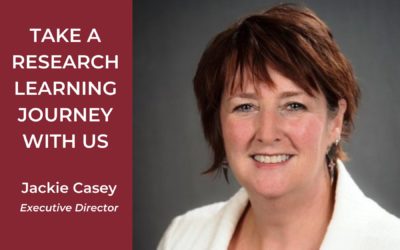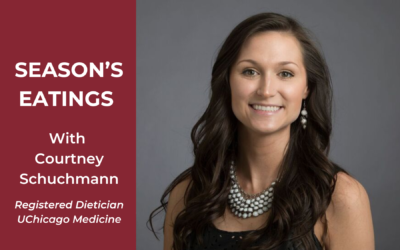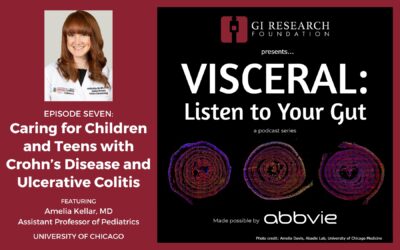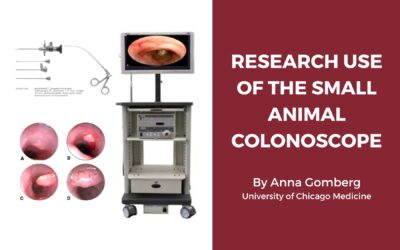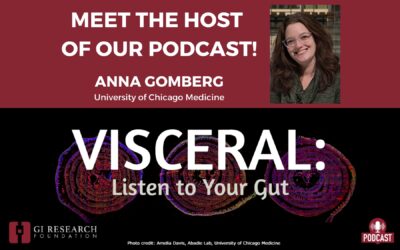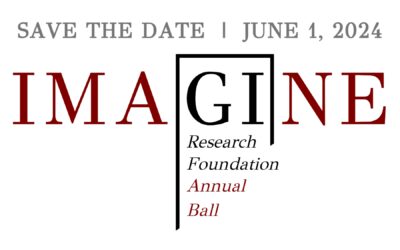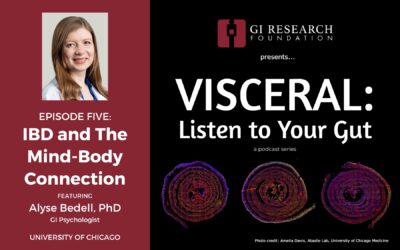Newsroom
Spotlight on Research
NS Magazine: GI Research Foundation Celebrates 62nd Annual Ball
CHICAGO, June 27, 2023 (Newswire.com) – The GI Research Foundation today announced that its CA CURE campaign drove the largest grantmaking year in its 60-year history. The campaign advances the understanding, diagnosis, and treatment of gastrointestinal cancers, and it awarded nearly $18.5 million in the fiscal year that will end on June 30.
Healing the Wounds of Inflammatory Bowel Disease
A University of Chicago team identified a special type of stem cell that heals damaged bowel tissue in mice, a discovery that may have direct application to humans with inflammatory bowel disease. These early findings, made possible with seed funding from the GI Research Foundation, resulted in a recent five-year, $2.5 million grant from the National Institutes of Health to study those cells in humans.
GI Research Foundation Quickly Delivers Nearly $18.5 Million to Study Gastrointestinal Cancers
CHICAGO, June 27, 2023 (Newswire.com) – The GI Research Foundation today announced that its CA CURE campaign drove the largest grantmaking year in its 60-year history. The campaign advances the understanding, diagnosis, and treatment of gastrointestinal cancers, and it awarded nearly $18.5 million in the fiscal year that will end on June 30.
Introducing Bedside Intestinal Ultrasound in the United States
With a partnership with the International Bowel Ultrasound Society, the University of Chicago Medicine is engaged in a new multi-phase initiative to bring widespread diagnostic use of bedside intestinal ultrasound (IUS) to North America. IUS, already widely used in Europe, will provide IBD patients with a non-invasive abdominal ultrasound exam as part of their regular clinic visits, so that their doctors can monitor their disease activity in real time.
2023 GastroIntestinal Research Foundation Competitive Grant Cycle Awards
Through our annual competitive grant awards program, the GastroIntestinal Research Foundation provides initial “seed” funding to select novel projects that allow investigators to pursue new and exciting paths that may not otherwise ever receive attention. Using robust scientific and lay review, in the 2023 cycle, the GI Research Foundation awarded $550,000 to six investigators at the University of Chicago for novel research projects.
2023 Associates Board Young Investigator Awards
Founded in 1997, the GI Research Foundation’s Associates Board is made up of professional volunteers and emerging leaders united by determination and dedication to educating our communities on the prevention, treatment, and cures for digestive diseases. This year, the Associates Board awarded a record $40,000 to four University of Chicago grant recipients.
The Digestive Diseases Center Translational Core with Joel Pekow, MD
One of the most important and enduring contributions of the GI Research Foundation (the Foundation) may also be one of the least well understood. For a decade, the Foundation has supported the Digestive Diseases Center (DDC) Translational Core, an engine that drives transformative research and scientific discovery for all investigators at the University of Chicago.
Eating Restriction and Inflammatory Bowel Disease, with Courtney Schuchmann, RD
Everyone has overindulged or eaten a food that didn’t agree with them. For most people, this means that the next time they are offered spicy chili or rich dessert, they politely decline or make a different choice. But for patients with Crohn’s disease and ulcerative colitis, this experience can be all too common—if nearly every time you eat anything, it hurts, limiting what foods you eat makes sense. But it can also be a slippery slope, leading to extremely restricted approaches to food.
The GastroIntestinal Research Foundation Awards Grants to Two Cancer Research Powerhouses
CHICAGO, Jan. 24, 2023 (GLOBE NEWSWIRE) — Treating and curing cancer remains an urgent health research priority. The GastroIntestinal Research Foundation (the Foundation) has made bold and innovative grant awards to advance the development of immunotherapies and personalized vaccines for colorectal cancer. With a focus on improving patient outcomes, it has identified and evaluated science from across the country, including two recent awards to The University of Texas MD Anderson Cancer Center and Mayo Clinic.
Take a Research Learning Journey With Us
Ever since becoming the Executive Director of the GastroIntestinal Research Foundation (Foundation), all my Zoom calls with my family start with a question from my brother with Crohn’s, “Have you found a cure yet?” While I can’t answer yes, I can tell him about the incredible research the Foundation is funding and its promise of a cure for Crohn’s and other digestive diseases. I value his continued urging to stay focused on the mission.
Season’s Eatings: How digestive diseases patients can cope with the challenges of the holidays, with Courtney Schuchmann, Registered Dietitian at the University of Chicago Medicine
From Halloween through the New Year, it can feel like every gathering – from family dinners to holiday parties and cookie exchanges – centers around food. What should be a happy holiday season often becomes a challenging ‘food season’ for those living with inflammatory bowel disease, irritable bowel syndrome, Celiac disease, liver disease, pancreatic disease, or those struggling with metabolic and weight-related concerns. Fortunately, Courtney Schuchmann, registered dietitian at the University of Chicago Medicine Digestive Diseases Center, has some helpful guidance.
The GastroIntestinal Research Foundation Launches New Multi-Million Dollar Funding Initiative Aimed at Curing Cancers of the Digestive System
CHICAGO, Nov. 03, 2022 (GLOBE NEWSWIRE) -- Despite centuries of...
Other Recent News
Visceral: Podcast Episode – Caring for Children and Teens with Crohn’s Disease and Ulcerative Colitis (episode 7)
This episode of Visceral is for parents and anyone else touched by pediatric IBD. We feature Amelia Kellar, MD, Director, Pediatric Intestinal Ultrasound Program.
Research Use of the Small Animal Colonoscope
At the 2022 GI Research Foundation annual ball, generous guests funded purchase of the Storz Coloview Small Animal Colonoscopy System, which has proved integral to supporting the ongoing research of several University of Chicago Medicine laboratories pursuing the promise of regenerative medicine.
Meet the Host of Our Podcast: Anna Gomberg
A compassionate patient with Crohn’s disease and a background in philosophy, developmental psychology, moral development, and media studies—and a lengthy career in nonprofit communications—Anna Gomberg has been writing, producing, and hosting the GI Research Foundation’s podcast, Visceral, since its launch in 2022.
Save the Date for the 2024 Annual Ball
The GI Research Foundation Annual Ball celebrates extraordinary research to cure, treat and prevent digestive diseases, and the philanthropic impact our donors make to advance our mission. This year’s Ball honors Sy Taxman with the esteemed Joseph B. Kirsner Award.
Super Simple Butternut Squash Soup
The weather is getting cooler, which means many of us are gravitating toward warm, comfort food. This gut-friendly recipe is packed with tons of nutrients such as vitamins A and C, potassium, magnesium, and fiber, and will warm you up on chilly fall nights.
Visceral: Podcast Episode – Don’t Cut That Out: How to add foods to your diet to optimize nutrition (episode 6)
In this episode, patients with digestive diseases learn what they should eat, why they should eat it, how they should manage their diet, and how to make sure that they’re maximizing their nutrition so they get all of the optimal benefits of the food they are eating. Registered dietitians with the University of Chicago Digestive Diseases Center, Lori Rowell Welstead and Courtney Schuchmann share their expertise on nutrition and its relationship to IBS, Celiac disease, Crohn’s, ulcerative colitis, gastroparesis, fatty liver disease, and more.
Visceral: Podcast Episode – IBD and the Mind-Body Connection (episode 5)
Episode 5 of Visceral features Alyse Bedell, PhD, GI psychologist, who discusses the ways in which Crohn’s disease and ulcerative colitis can impact mental health and personal well-being. Dr. Bedell shares research to help patients understand how IBD relates to anxiety, depression, and other mental health challenges, and how to harness the mind-body connection to help manage pain and symptoms.
Introducing Bedside Intestinal Ultrasound in the United States
With a partnership with the International Bowel Ultrasound Society, the University of Chicago Medicine is engaged in a new multi-phase initiative to bring widespread diagnostic use of bedside intestinal ultrasound (IUS) to North America. IUS, already widely used in Europe, will provide IBD patients with a non-invasive abdominal ultrasound exam as part of their regular clinic visits, so that their doctors can monitor their disease activity in real time.
2023 GastroIntestinal Research Foundation Competitive Grant Cycle Awards
Through our annual competitive grant awards program, the GastroIntestinal Research Foundation provides initial “seed” funding to select novel projects that allow investigators to pursue new and exciting paths that may not otherwise ever receive attention. Using robust scientific and lay review, in the 2023 cycle, the GI Research Foundation awarded $550,000 to six investigators at the University of Chicago for novel research projects.


